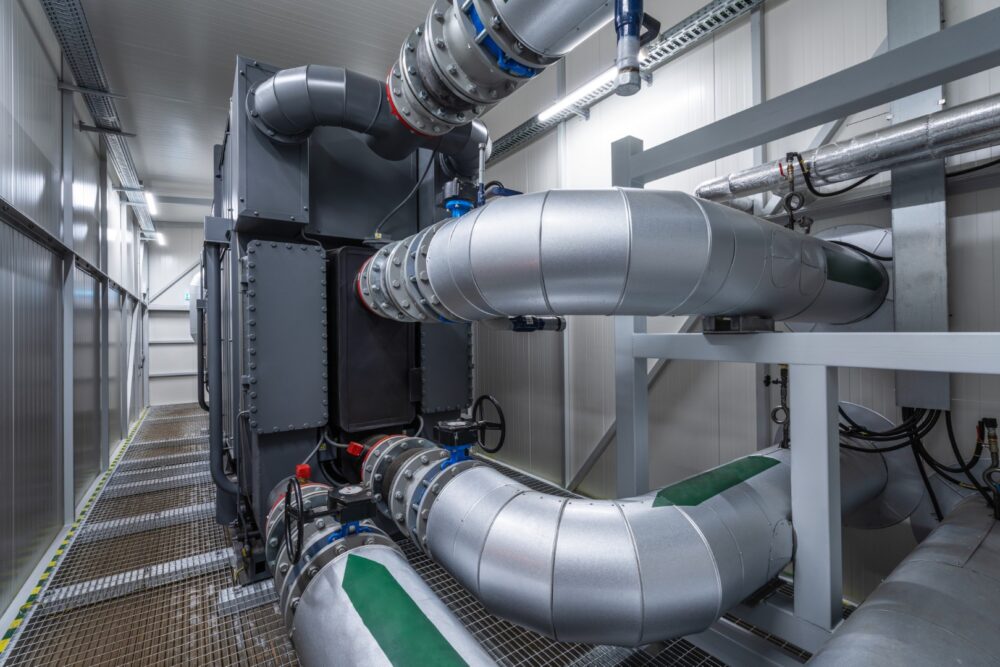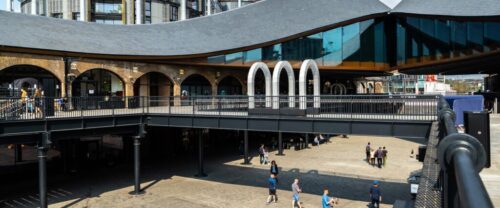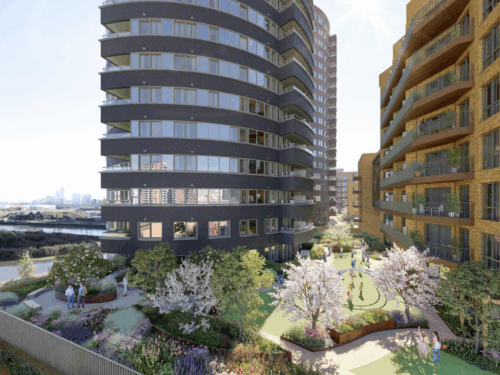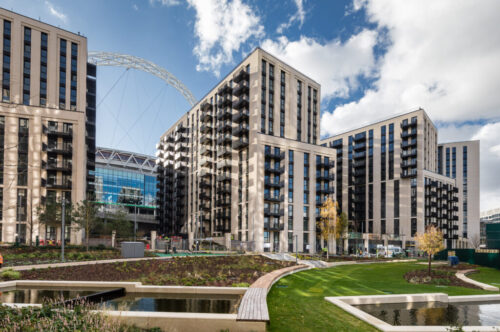Heat Networks

Welcome to the era of low-carbon heating
Power On is driving the electrification and decarbonisation of heat across the UK.
Our sustainable Heat Networks give high-rise developers a future-proof alternative to gas, delivering 75–80% carbon savings from day one and exceeding Future Homes Standard requirements.
Plus, they’ll become increasingly low-carbon over time, as the electricity grid continues to decarbonise – with no need for retrofitting, bolt-on technologies or adaptions.
Ready to talk about low-carbon heat solutions for your next project?
What is a Heat Network?
Heat Networks are a centralised way of providing heat and hot water for a city, campus or housing development, eliminating the need for individual boilers or electric heaters in each building.
An underground pipe system that distributes heat from a central energy source to multiple buildings, or to multiple residences or offices within one building, Heat Networks are a crucial tool for reducing carbon emissions. They promote lower electrical loads, as well as being space-saving, reliable and cost-effective for developers and end-users
What Heat Network solutions do Power On offer?
 Community Heat Hubs
Community Heat HubsCommunity Heat Hubs
Community Heat Hubs use renewable heat sources with high-efficiency heat pumps to deliver 100% of the heating and hot water for high-rise residential developments, providing a reliable, low-carbon alternative to gas.
 Ground Source Heat Pump
Ground Source Heat PumpNetworked Ground Source Heat Pumps
Networked Ground Source Heat Pumps use shared ground arrays to deliver efficient, cost-effective heating, hot water and cooling, while minimising demand on the electricity grid.
Why are Heat Neatworks so important?
Approximately 23% of greenhouse gas emissions in the UK currently come from heating homes and workplaces, but the Future Homes Standard set in motion a transformative journey. Reducing carbon emissions and finding alternative energy solutions is now a top priority for the UK.
2022
All new homes must deliver a 31% reduction in carbon emissions
2025
All new homes must be zero-carbon ready. Gas will no longer be permitted in new-build developments, and homes must deliver a 75–80% reduction in carbon emissions compared to 2013 standards.
2050
The UK aims to reach net zero carbon emissions, with all new and existing homes operating without fossil fuels and fully aligned with zero-carbon standards.
This ambitious agenda poses a significant and immediate challenge for UK developers. Power On has been actively involved in consultations with government
and industry task forces to ensure we’re leading the way in developing pioneering, government-regulated solutions for zero-carbon-ready energy.
Our low carbon Heat Networks are the greenest heating upgrade available – sustainable, cost-effective solutions to reduce carbon emissions and help you meet the challenges of moving towards a greener future.
Our Heat Projects
We’re supporting the delivery of over 27,700 heat network connections across live and in-construction developments.





